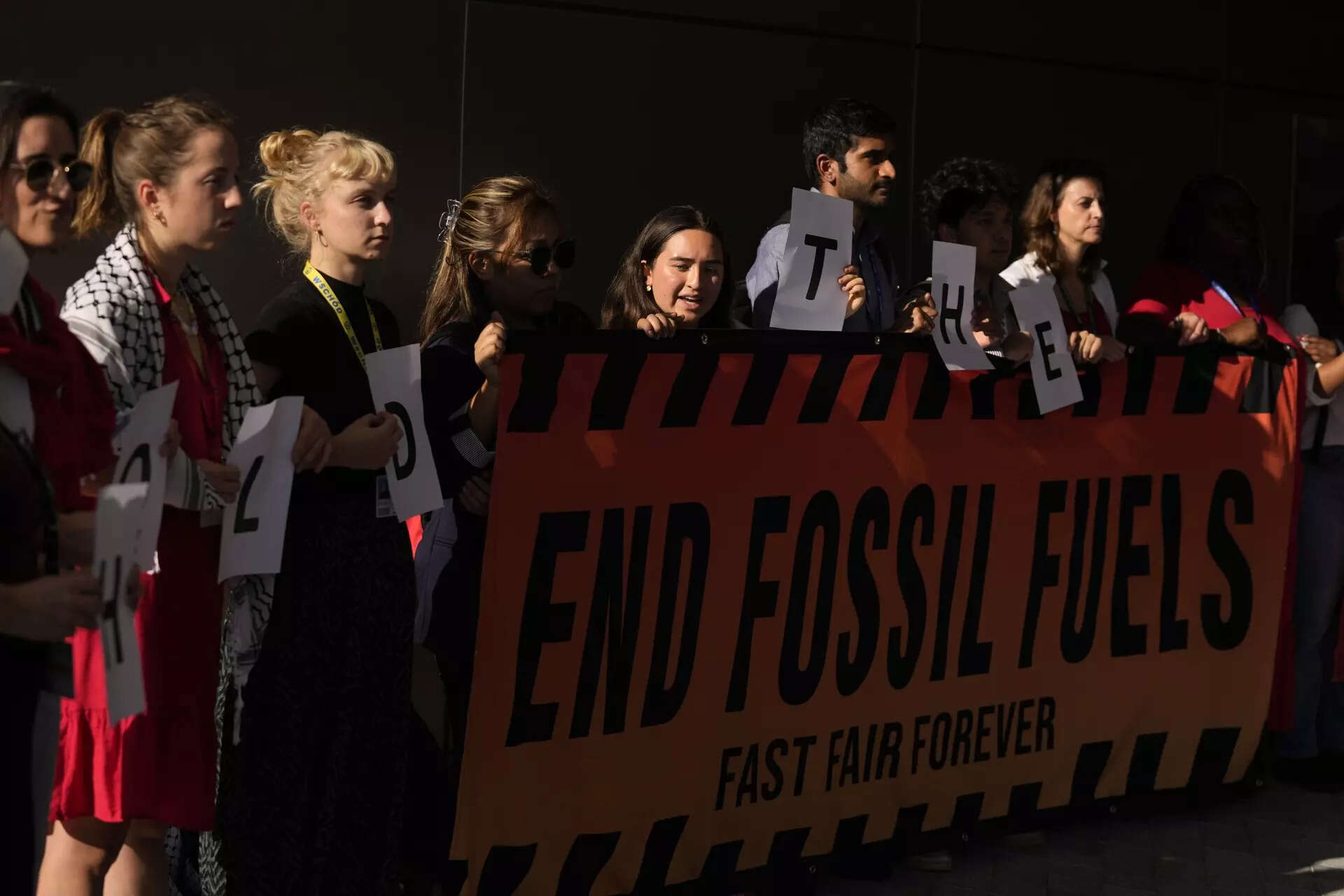
The UN climate summit (COP28) went into overtime as the wait for its final decision text continued on its scheduled concluding day on Tuesday in absence of a common landing zone over the language on fossil fuels. India too has certain red lines, specifically on coal use and methane emission points, which the country already flagged formally to get the best deal for itself.
Differences could not be thrashed out despite the countries being in a huddle overnight after getting a draft text from the presidency on Monday evening. Negotiators continued to be in a huddle to find a way on either to have some strong language on fossil fuels, if not its ‘phase out’, or on how to have at least some final outcome without touching the contentious issues.
Primarily, EU and small island nations have been insisting on ‘phase out’ language for fossil fuels. The opposition to it has been coming mainly from all oil producing nations. India and most of the developing countries have certain concerns over para 39 that talks about “rapidly” phasing down unabated coal and “limitations on permitting new and unabated coal power generation”, and “accelerating and substantially reducing non-CO2 emissions, including, in particular, methane emissions globally by 2030”.
India will continue to use coal for its development needs and it would not opt for drastic methane emission cut as it has potential to impact its livestock sector and paddy cultivation. The country is, therefore, learnt to have suggested for “modulation” of the entire para 39 to align it with the principles of the Paris Agreement where any climate action is required as per “national circumstances in a nationally determined manner”.
India during the meeting of the presidency over the text last night is also learnt to have categorically said that the “increased ambitions cannot be achieved without the corresponding means of implementation”. It also underlined that while there are constant calls for increase in mitigation ambition, the means of implementation have not been forthcoming.
Highlighting the gap in the provisions of means of implementation, India also flagged that the need is now for trillions of dollars rather than merely $100 million whose mobilisation effort is being repeated “COP after COP”. India also submitted that the paras related to financial resources and means of implementation needs “further strengthening”.
Once the final text comes, the COP28 president Sultan Al Jaber will take it to the plenary for adoption. The outcome will be adopted only if all the countries have consensus over the entire text.

